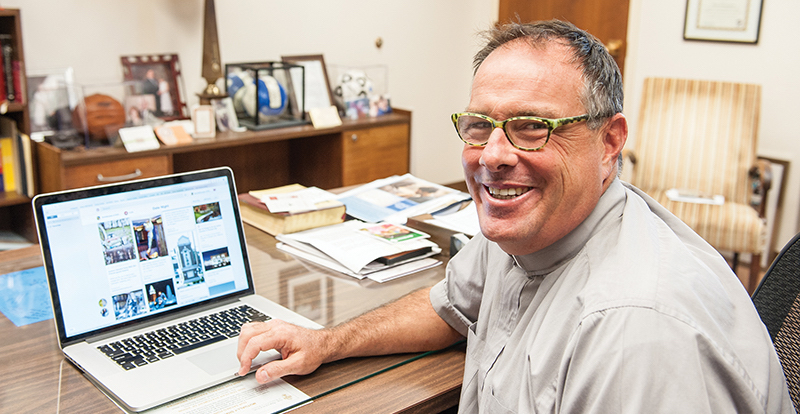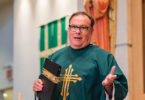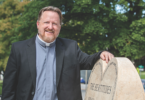
by Deacon Dana Nearmyer
Our memories have a powerful influence on our worldview, and our eucharistic memories matter as we pass on the Catholic faith to others.
Our creator comes to us in the Eucharist to heal our wounds and to lift us out of our loneliness. Jesus wraps our hearts in his divine love when we meet him in the Eucharist.
I pray that all of our young people, novices and tender seekers, are experiencing warm, transcendent and inspiring eucharistic encounters in our parishes and creating memories that reinforce Jesus’s proclamation from Matthew’s Gospel: “I am with you always, until the end of the age.”
Our memories frequently surround strong emotions. Emotions are actually deeply connected to our brains, and young people’s emotions are very powerful in their decision-making about faith — and most everything.
As part of an article titled “Understanding the Teen Brain,” the University of Rochester says:
The rational part of a teen’s brain isn’t fully developed and won’t be until age 25 or so. In fact, recent research has found that adult and teen brains work differently. Adults think with the prefrontal cortex, the brain’s rational part. This is the part of the brain that responds to situations with good judgment and an awareness of long-term consequences. Teens process information with the amygdala. This is the emotional part.
In teens’ brains, the connections between the emotional part of the brain and the decision-making center are still developing — and not always at the same rate. That’s why when teens have overwhelming emotional input, they can’t explain later what they were thinking. They weren’t thinking as much as they were feeling.
Young people need to learn about Jesus in the Eucharist, but equally important they need to build emotional attachment to Jesus through the Eucharist.
If all of our young people had warm, meaningful and positive experiences of the Eucharist, the Georgetown study finding that only 60% of 30-year-olds that were raised Catholic are still practicing would be greatly improved upon.
Parents, grandparents, godparents, catechists, musicians and spiritual formators nurture both emotional and cognitive bonds to Jesus through love of the Eucharist. Model and encourage those who are tender in the faith to pray before the Blessed Sacrament in eucharistic adoration.
God listens to us, cares for us and answers our prayers, often in undeniable, personal ways in front of the Blessed Sacrament.
I have watched this for 24 summers at Camp Tekakwitha, and every day in eucharistic adoration chapels and at Masses across the archdiocese. The power and tenderness of the Eucharist is especially potent when we receive the Blessed Sacrament. Form young people to be assured of Jesus’ presence by listening to Jesus and reflecting on his love after receiving Communion.
Most importantly, show them how you offer your prayers, hopes and dreams to Jesus at the altar during Mass. Form them to do the same to create warm, transcendent and inspiring eucharistic memories that reinforce Jesus’s proclamation: “I am with you always, until the end of the age.”






